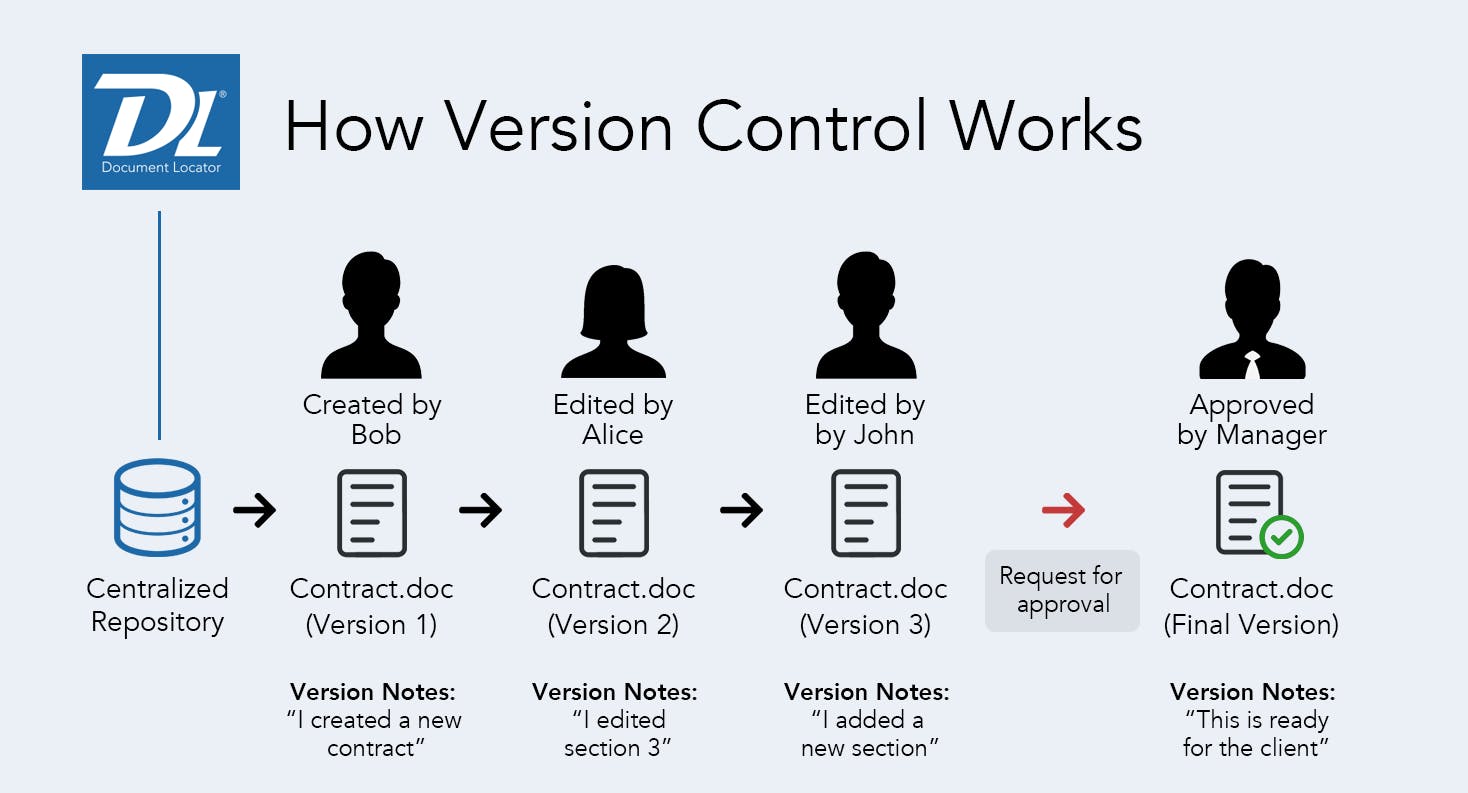Version Control Systems Know-How
Version Control Systems
 A version control system (VCS ), also known as the source control system, is a system that is used for tracking and making changes to the software code. Version Control Systems are software tools that assist software teams in source code management. You could say, it's a lost developer's survival guide.
A version control system (VCS ), also known as the source control system, is a system that is used for tracking and making changes to the software code. Version Control Systems are software tools that assist software teams in source code management. You could say, it's a lost developer's survival guide.
Developers can compare the previous versions of the code this helps in formatting new code and helps in performing code revisions. Version control systems have become an important part of modern-day software teams.
Using a Version control system is similar to having a backup via the cloud, so even if the user loses data it can be simply recovered from the old system. VCS displays simultaneous code modification, the new codes can be compared to the previous ones at various stages of code development.
Advantages of a Version Control System:
- Improves Traceability
A VCS always remains in synchronization with code modifications, it not only keeps a track of previous codes but also helps with root cause analysis.
Various bug tracking software like Mantis, RedMine and Zoho provides a message of purpose and intention towards code change. These messages can be kept in reference while moving forward with writing code.
Developers can make long-term changes in the code keeping in mind the previous versions. It works like a quick fix for optimizing code.
- Branching and Merging Operations
A version control system always ensures that cross-departmental work (production, sales, marketing) works independently. Branches in simple terms are different teams joined together for working together as the same unit.
Creating a branch in the version control ensures independent working in multiple departments. “Branch” ensures that no work is overlapped. VCS also ensures that teams can adopt different workflows for improving their specific performances.
Tracking every little change made to the file
It is extremely important to keep track of data, every little change made to the code over the years is to be preserved and well version control exactly does that.
The tools that form a part of the VCS system, keep a tab on changes made in the source code that further ease the developer workload and assist in root cause analysis.
Types of Version Control System
Centralized Version Control System:- Centralized means keeping the multiple chunks of information at a central location.A centralized version control system ensures that a central repository is shared with different developers. Using centralized source control, every user commits directly to the main branch, so this type of version control often works well for small teams, because team members have the ability to communicate quickly so that no two developers want to work on the same piece of code simultaneously. Strong communication and collaboration are important to ensure a centralized workflow is successful.
Local Version Control System:- Local Version Controls function without a remote repository. Companies that adopt local version control manage files in the local system. All the modifications are made in the local database. There are no remote servers in the local version control system. Everyone has their own independent machine and cross-data sharing doesn't exist.
Distributed Version Control System: Every developer has a local copy of the repository in this system. Developers can make multiple changes to the local copy, the local copy. The changes made in the local copy create no impact on the remote repository.
Popular Version Control Softwares:
1.GitHub:- GitHub is the most popular version control provider. Git is a distributed version control system that enables developers to modify the entire repository system. Be aware that, Git and GitHub are two different things. Git is an open-source, version control tool created by developers working on the Linux operating system whereas GitHub is a company founded in 2008 that makes tools that integrate with git.
Bitbucket:- Bitbucket supports a distributed version control system. It simplifies the collaboration task. Bitbucket provides a single place for planning projects, code testing, and deployment. Bitbucket follows a built-in continuous delivery system.
AWS Code Commit:- AWS Code Commit is a secure source control platform. It helps developers to collaborate on code, pull requests, and merge data. It provides feedback by default and also assists developers in the management of heavy workflows. This also eradicates the need for backing up, scaling and maintaining source control servers.
4. GitLab:- GitLab provides the functionality to make automation of the complete DevOps which makes a plan to design, create, build, verify, test, deploy, and monitoring on scalability, The collaboration of code platforms is central which can be reused and implemented. The public repository on GitLab can be used for wikis, documentation, and tracking of issues. It contains many CI/CD pipelines, container registries, integration of Kubernetes, and offers the best data portability.